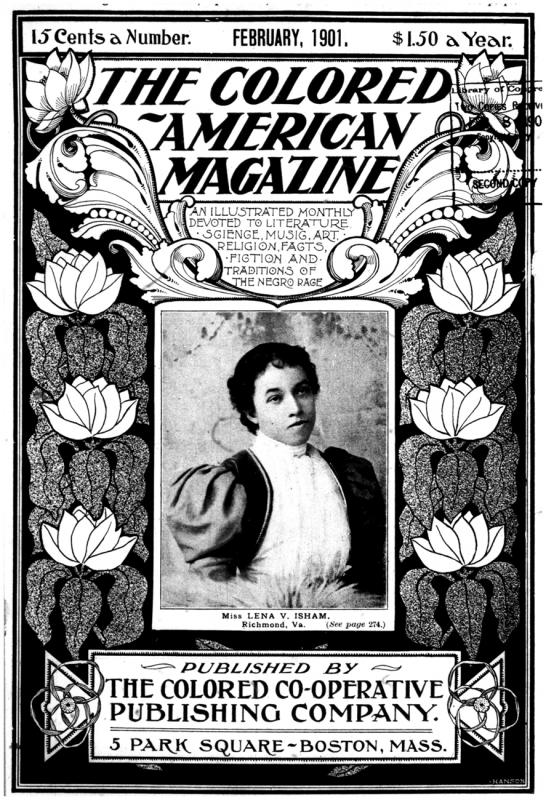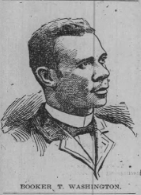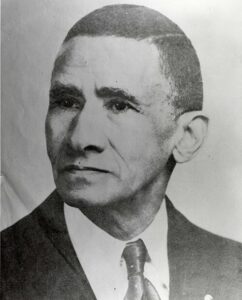Once upon a time in Black Entrepreneur History, there was founded the Colored Cooperative Publishing Company which published The Colored American Magazine, the first African American periodical about and focusing on the African American artists, writers and stories of Black Culture of the early twentieth century.
“The Colored Cooperative Publishing Company was organized in Portland, with a capital stock of $50,000, of which $29 is paid in1“, in a quote from the Boston Evening Transcript of 1901. The president of the Colored Cooperative Publishing Company was Oliver G. Waters from the city of Pittsburg, Pennsylvania while the treasurer of the company was Jesse W. Watkins of Boston, Massachusetts. In 1901, the publishing company was located at 5 Park Square in Boston, Massachusetts2, and the actual certificate for the company was granted on December 16. 19013 for general publishing business.
Soon after, the Colored Cooperative Publishing Company was responsible for the publishing of the Colored American Magazine to which Pauline Elizabeth Hopkins , author of Of One Blood, became editor for four years, writing most of her literary stories in this publication which started in 1901. In May of 1901, its anniversary number, it already had 300 subscribers4 for its monthly publication.

By the month of June, news of the Colored American Magazine had spread throughout the country, landing in The Atlanta Constitution, a newspaper in Georgia, which is quoted as stating it was “full of interesting articles 5” such as:
- “Famous Men of the Negro Race” by Pauline E. Hopkins
- “Rainilaiarivony, Prime Minister of Madagascar” by S.E. F. C. C. Hemedol
- “Influence” (poem) by J.R. Tines
- “The Solution of the Negro Problem” by Augustus M. Hodges
- “Aunt Ria’s Ten Dollars” by George F. Stewart
- “Fascinating Bible Stories” by Charles Winslow Ha
To learn much more and see digital and original pictures of the Colored American Magazine, visit here.
In 1905, Booker T. Washington (owner) and Fred Moore (editor after Pauline Hopkins left) took over the newspaper, changing the staff along with it, specifically Pauline Hopkins, however, it continued to produce immaculate articles and stories for the majority African American audience and the minority audience of white people who were also intrigued by the works therein.
Fred Moore was said to be a great orator, giving lectures and keeping the attention of the audience from the beginning to end, and in one in particular lecture at the Ebenezer Baptist Church in Pittsburgh, he was described as “being intensely interested in building up the race, and believes this is to be done by right living and a better representation of business.6“
In totality, this is what the Colored American Magazine and The Colored Cooperative Publishing Company did – brought a fresh and true look into the African American literature, Black Culture and Entrepreneurship.
Sources:
- Boston Evening Transcript 23 Dec 1901, Mon · Page 3
- Savannah Morning News 08 Apr 1901, Mon · Page 7
- Kennebec Journal 21 Dec 1901, Sat · Page 5
- The Morning Post 09 May 1901, Thu · Page 5
- The Atlanta Constitution 26 Jun 1901, Wed · Page 3
- The New York Age 18 Nov 1909, Thu · Page 8
- Photo is Public Domain from 1901 (wikipedia)





More Related Stories
Isaac Scott Hathaway – Founder of Isaac Hathaway Art Company & Designer of First African American Coin
James Wormley – Founder of the Most Expensive Hotel in Washington D.C. in 1800s – the Wormley Hotel
William E. Matthews – Wealthy Financial Broker & Civil Rights Leader of 1800s